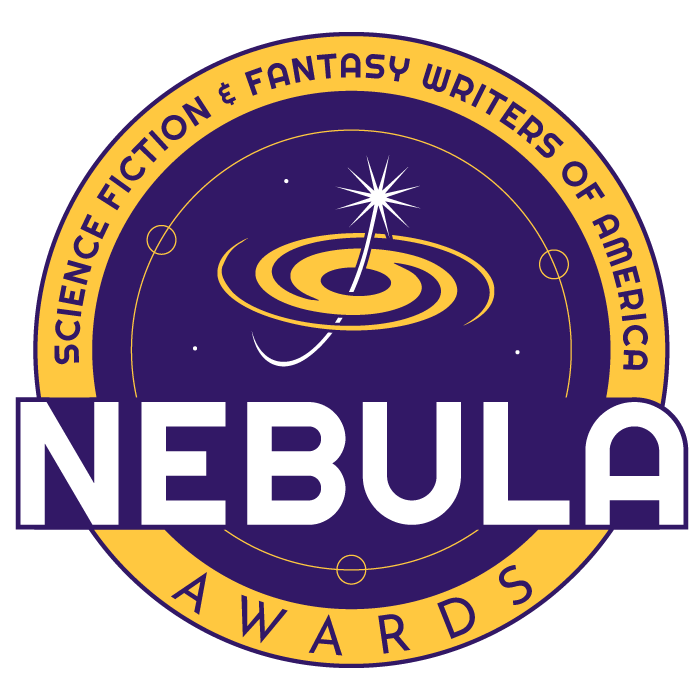I spent an extended Labor Day weekend at NASFiC (North American Science Fiction Convention). A NASFiC is held in years when the WorldCon is outside North America. This year, WorldCon was in Scotland, so NASFiC was held at CascadiaCon in Seattle.
I was on several panels:
Dragon Big, Knights Crunchy
Is There a Future for Humanity?
Change for a Penny: Microtransactions, Licenses, and Virtual Exchanges
Favorite Music from SF&F Movies and Television
Morality in Youth-Oriented Fantasy
The Idea Factory
Writers and Illustrators of the Future Contests and 21st Annual Awards
Cloning: Hoary old clich?or hot topic of the decade?
SciFi Friday, Changing the Face of Science Fiction on Television
My favorite of the panels I was on was “The Idea Factory,” where we discussed where ideas come from, how we get our ideas, etc.
I also did a reading that was attended by five or six people. I read “Bird-Dropping and Sunday,” plus a few short-short stories. I think they went over fairly well.
In addition to being on panels, I attended several panels, at some of which I took notes. Here are my (very raw) notes:
9/1/05
Magic or Religion?
Susan Krinard
Harold Gross
Brandon Sanderson
Mark Ferrari
HG: When you start creating magic system for fantasy, it tends to reflect religion.
MF: Decided to write a fantasy novel within the Judeo-Christian mysthology. Mythology not necessarily false. Don’t see a clear diving line between magic and religion.
HG: Even if you write about a society without religion, there will be a belief system.
BS: Youi can have a society that has divorced itself from religion, but even then, there must be a religion for them to react against.
Books don’t have to focus on the religion, but it must at least be in the background.
BS: A good writer can give a character opposite beliefs from the writer and not make him just a straw man.
Handling the Aggressive Alien
Lawrence M. Schoen
Melissa Lee Shaw
Bridget Coila
Steve Harmon (M)
SH: What makes a good aggressive alien?
MLS: I like an alien that wins in the end. Aliens should enjoy or take pleasure in conquest.
LMS: Aggression doesn’t occur in a vacuum. It’s only aggression if people on the receiving end see it that way.
BC: There’s a difference between aggression that is automatic and what it intelligent malice.
MLS: The aggressive alien is often a symbol for the “really mean people”, which we like to see defeated.
LMS: Klingons have license. They’re passionate in every endeavor: music, war.
MLS: In the human mindset, you’re either predator or prey.
SH: in SF&F we’re generally looking at exaggerated reflections of our own or perceptions of other cultures.
LMS: Just doing reflection is easy way out. Great writer will take you along so you can understand the new.
Audience member: Consider power differential — an alien with power differential too high not interesting.
Paragraph, Scene, Chapter: The Building Blocks of Story-Telling
Brandon Sanderson
Julia Mandala
Nina Munteanu
Ted Butler
BS: I use the “points on a map” method of plotting. I know the beginning and the end, and then I figure out the points that happen along the way.
How do we determine what is a chapter?
TB: I looked at Heinlein, and found most of his chapters were 3-5k words, so that’s what I do. I love to end the chapter with a hook, so the reader can’t wait to turn the page.
BS: It’s a hard question. It’s easy if you’re going to jump time, because that’s a good break. But you want to have a chapter have its own story arc.
JM: You never want a character to walk away happy at the end of a scene.
NM: Make sure something is different at the end of the scene than it was at the beginning.
Suggestions: Character learns something is more difficult.
BS: A screenwriting axiom: in late, out early. Start a scene as close to the tension as you can, and leave as close to the tension as you can.
You need motion from low to high and vice versa.
If you start off with conflicted dialogue, you tend to draw the reader in.
Give less of the world than you think you have to in the first chapter. Give more of the character than you think you have to.
Prologues–some hate them, but those are mainly certain type that give bad name (infodump, etc) It should be a chapter with a difference — big time shift or major POV shift.
9/3/2005
How to Get Publisher’s and Agent’s Attention
Betsy Mitchell
Deborah Ross
Jak Koke
William C. Dietz
BM: Look in Locus and see when agents move from place to place. After moving, editor usually trying to build author base.
I hate query letters. It’s very hard to distinguish yourself in a query letter.
Find “selling points” such as daily life of author fits with novel, or compare with specific other novel for audience, or high concept, etc.
DR: The conventional wisdom was to start with short fiction, but that doesn’t work if you’re a natural novelist.
BM: (in response to how much editors are willing to do) Like to find things that are at least 95% there. Must have whole story and good characters.
JK: Can work with writers to improve plot, but hard o improve characters. And don’t want to do line by line to improve bad writing.
WD: In the revision process with an editor, you have to remember what business you’re in. You’re in the entertainment business, not the literature business.
JK: We get a lot of cover letters that say “I’m the best writer, I’m a genius.” Don’t do that.
Many authors don’t follow the guidelines. FOLLOW THE GUIDELINES.
JK: Writing a “treatment” is not exactly the same, but books on writing treatments can be useful in learning how to write a good synopsis.
BM: Take the small
New Writers and Agents
Brandon Sanderson
Kathleen Richardson
Kevin Andrew Murphy
Steve Mancino
Rebecca Neason
SM: An agent will get you more money, but that’s not only reason. Big reason is agent is a go-between talking about money.
BS: Agent allows author and editor to talk about book, not money.
KAM: Agent knows subsidiary rights, film rights, etc., and has contacts.
SM: Agent can engage in bidding war, whereas authors can’t simultaneously submit.
BS: All the money goes to the agent, and the agent will consolidate it into only one tax form.
How to recognize a good/bad agent:
KAM: A bad agent will charge to read your ms., and may even say “it’s publishable, but you need professional editing?” and then recommend a paid editor.
SM: If you have an agent, a sign he’s not as good an agent as you need is if the agent isn’t aiming for high-level publishers.
KR: If you’re not having good communication with your agent, that’s a bad sign.
RN: If it take 9 months to get a letter answered, that’s a bad sign.
BS: Look for agents who represent people you know.
KR: Look for agents in NY, or at least a publishing city.
KR: Literary Marketplace online
BS: Agents/agencies have different styles. Different doesn’t mean bad. E.g., some agents get involved in editing, others aren’t. Some like to be your buddy; some like to be professional, like a lawyer.
9/4/2005
Are You Really a Writer?
James Van Pelt
Ken Scholes
Louise Marley
Toni Weisskopf
LM: You can’t wait to be paid as a writer before you live as a writer. Ken Rand said, “Anyone can say that you can’t write, but don’t let them say that you didn’t.”
JVP: You can be a professional writer before making a sale by acting professionally.
JVP: I don’t think there can be something that is just a good story but without meaning/theme. The writer may not intentionally be putting in that theme, but without the them a story means nothing and is not comprehensible.
9/5/2005
What You Need to Know About Putting Your Story in the Mail
Beth Meacham
Patrick Swenson
BM: Don’t take form rejections personally.
1-inch margins and Courier font required? Yes.
What about Times New Roman 14-point? It’s fine, except if you want to have it published by an actual publisher.
Q: What is automatically rejected?
PS: Single-spaced.
BM: First paragraph involves hero/heroine looking in a mirror.
PS: First paragraph of short fiction, peron wakes up and wonders what to do today.
Q: What do you want to see inside the envelope beside the ms.?
BM: A cover letter, with lots of white space. Name of person. Address. Name of story & genre. Publication credits. Really want to see a lot of white space to write notes. First three chapters and a complete synopsis, including the ending.
If they want the complete ms., better have it ready when they call or write for it.
Don’t like prologues. Prologues are generally crutches.
Synopsis (for Tor) = chapter by chapter, about a paragraph per chapter.
Widow/orphan protection not important either way.
No editor-shopping at Tor. One editor rejection is rejection for all.



